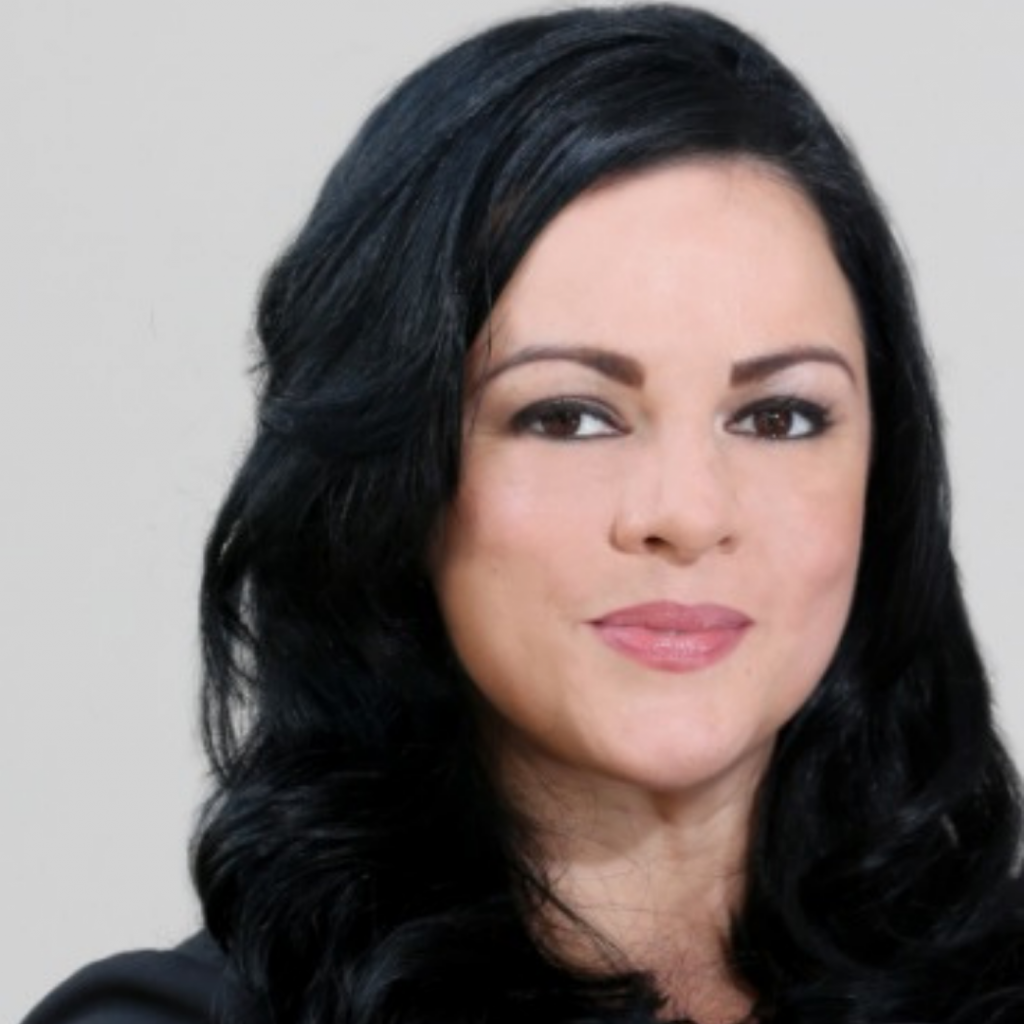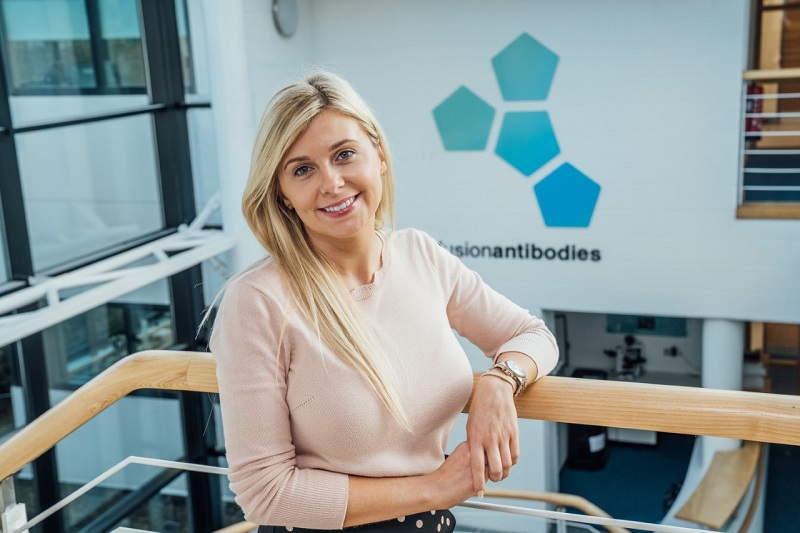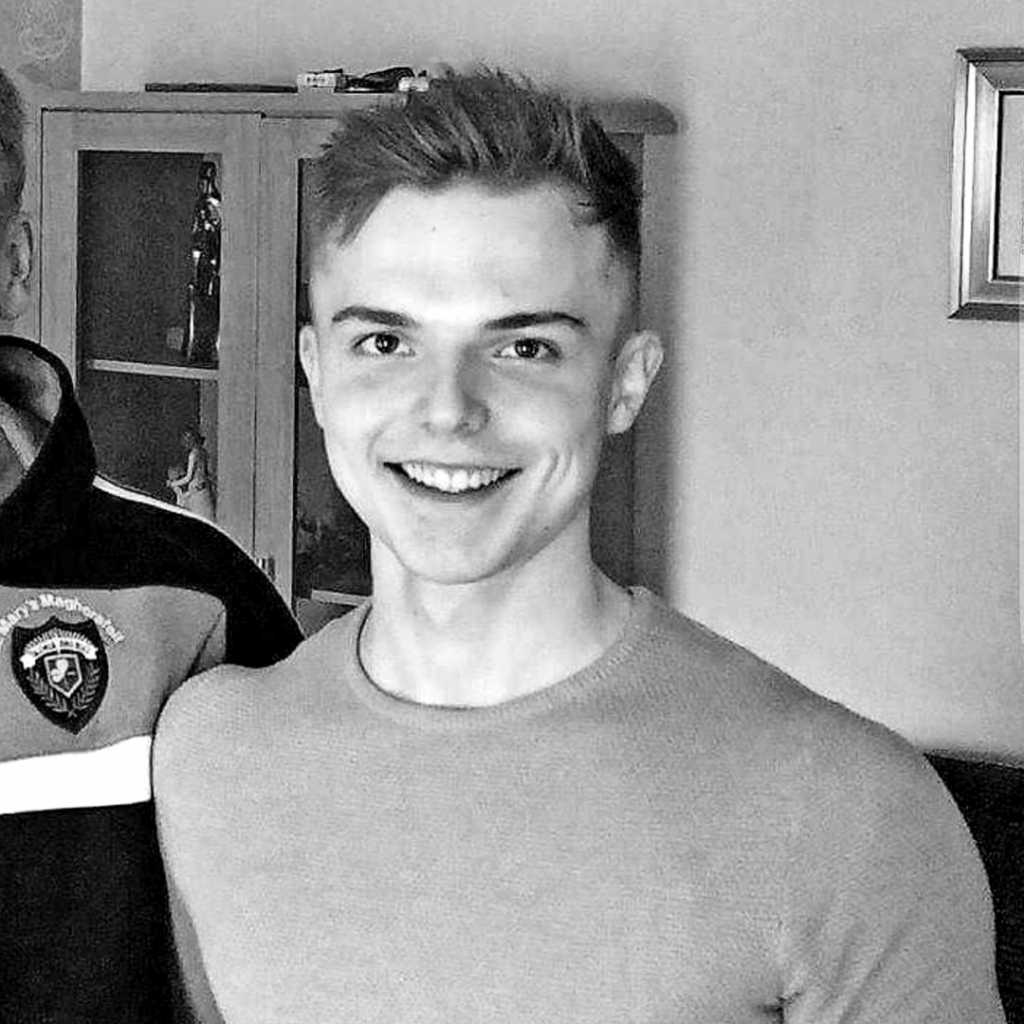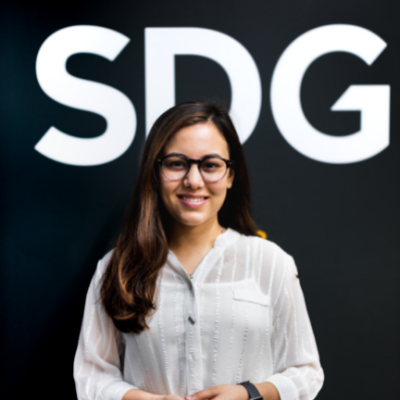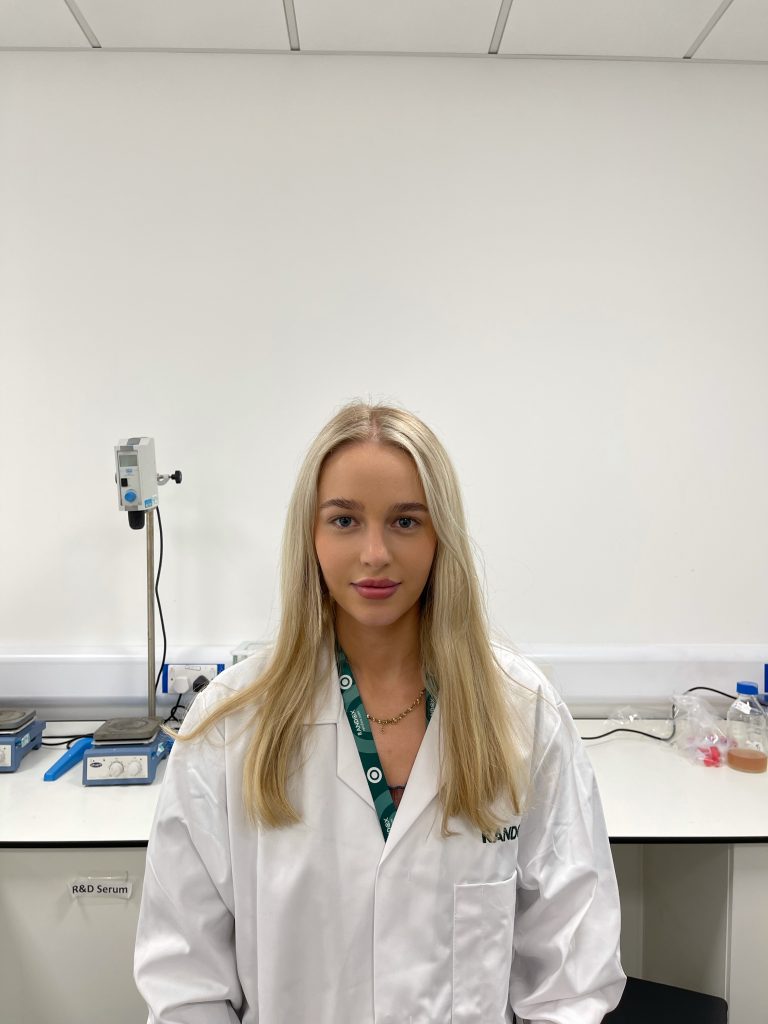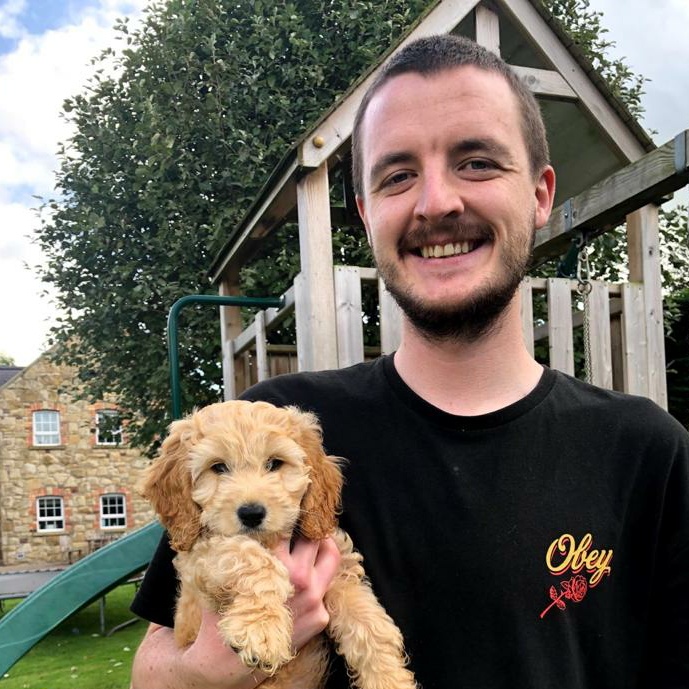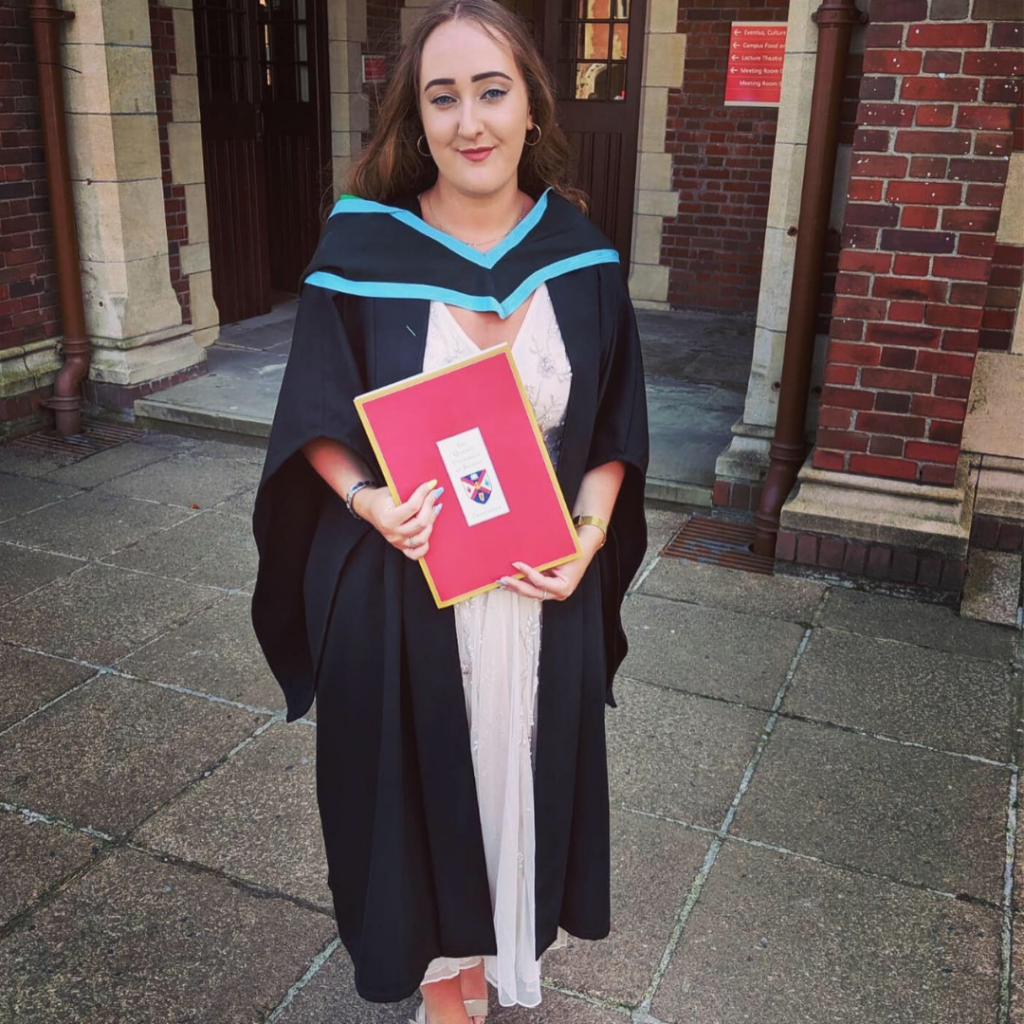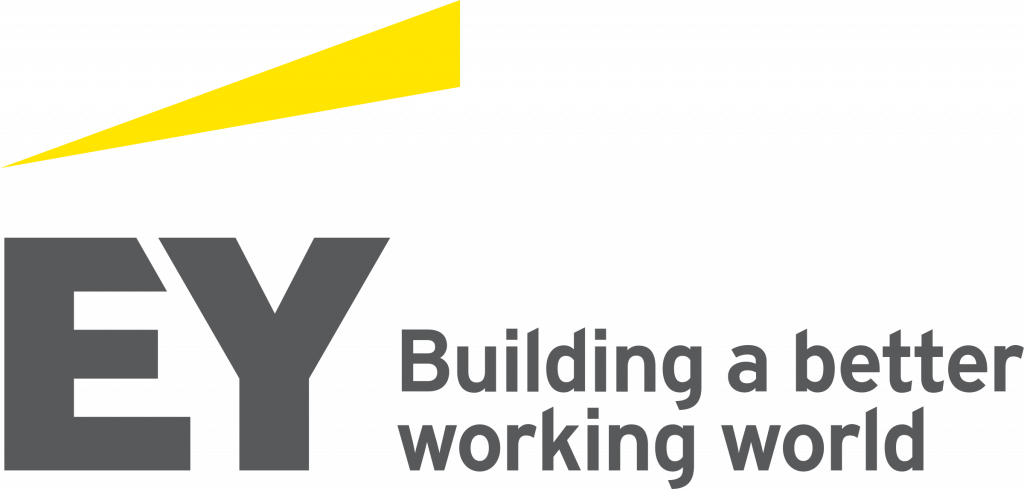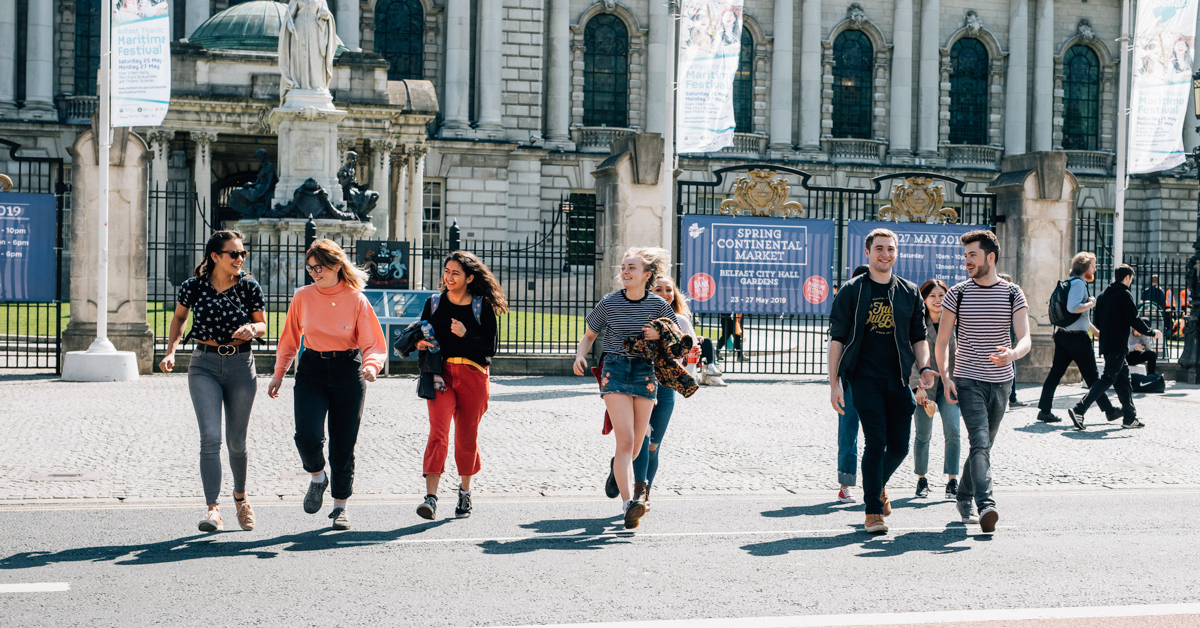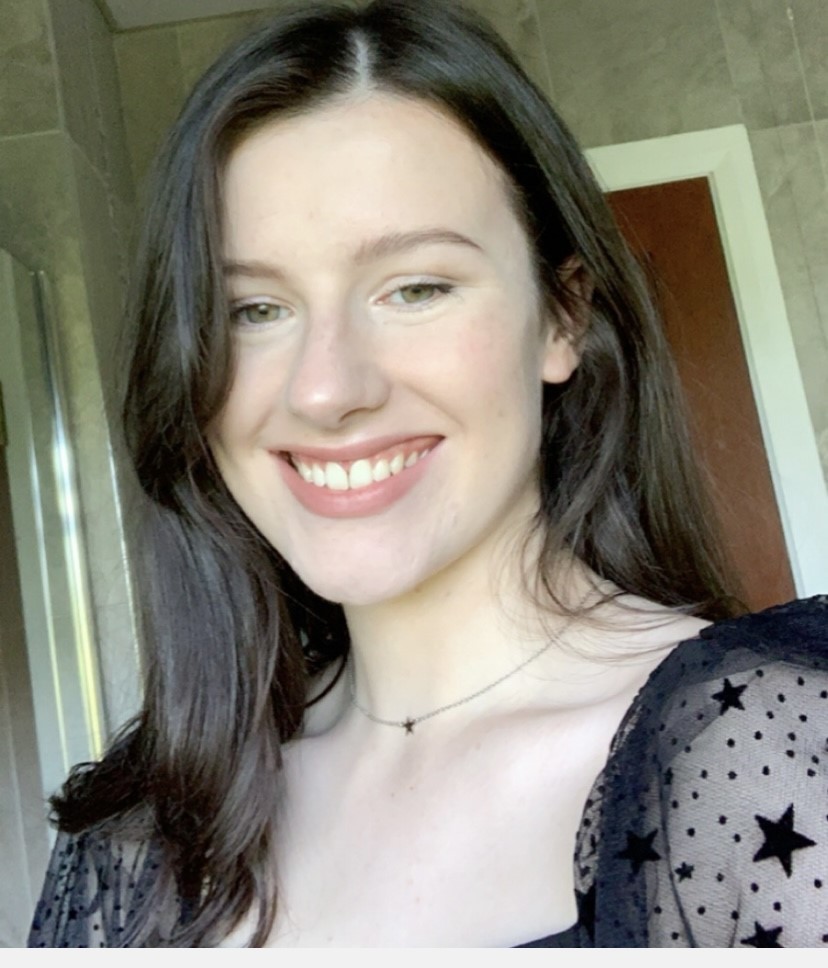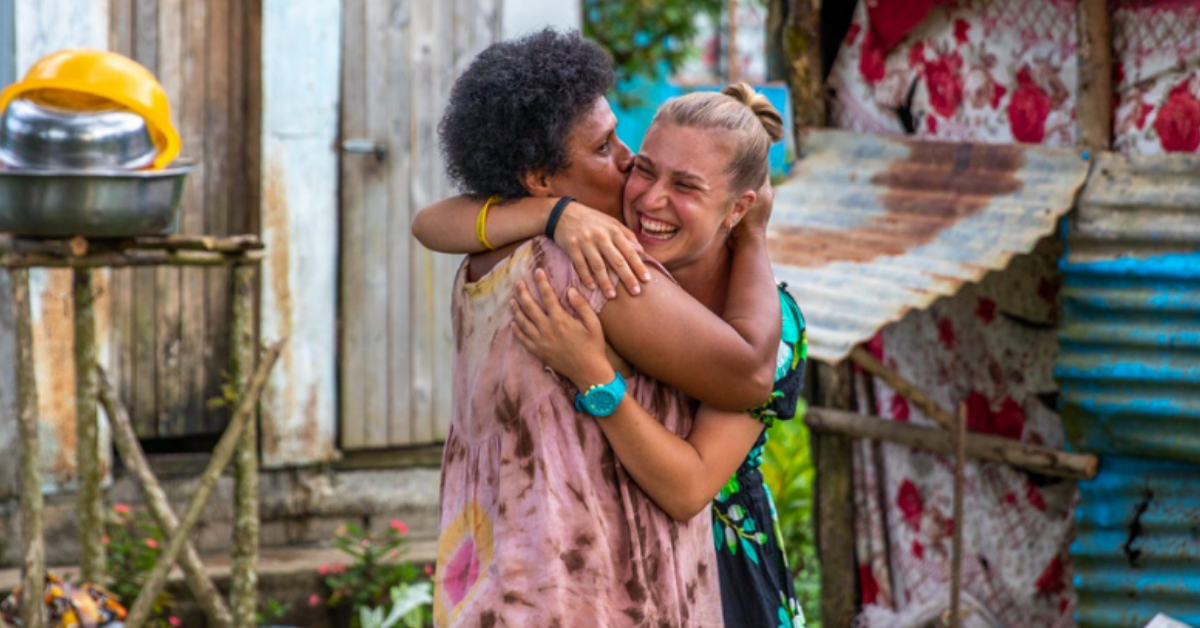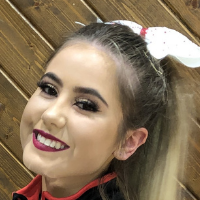Maddie Warren, a Queen’s History and English graduate and a newly qualified teacher offers her advice to students and graduates.
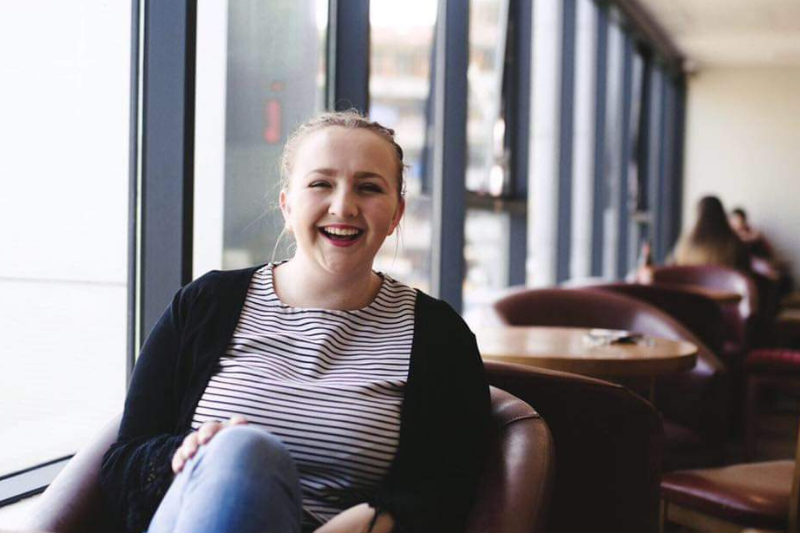
You are supported to explore your options at University
When I started at Queens, I thought that I might want to be a teacher. And I did my first year of Queen’s and I kind of like I loved it. I loved getting involved in different things at Queen’s, I became a student ambassador, and did lots of tours for Queen’s, and kind of really, really enjoyed my first year. And towards the end of it. I had a bit of a careers crisis where I thought that maybe I didn’t want to teach. Maybe that wasn’t the right role for me.
I kind of had a bit of a freak out and really, really didn’t know what I wanted to do. So I had a chat with my university professional tutor, which was really helpful. And I also went to a few talks that were run by different businesses at Queen’s and one of them was an organisation which organised things like camp America and stuff like that, and I got in contact with them. And they ended up getting me a placement to go and work in Spain for the summer. So I went over to a lovely place near Marbella, in the south of Spain. And I spent my first university summer kind of working there looking after some children, learning Spanish and teaching English there. And that was amazing.
Education is an experience, not just a route to a career
My summer in Spain was kind of life-changing for me. I realised that I didn’t need to have a career when I finished university like straightaway. I met a lot of different people who were travelling around and I realised that there were kind of like loads of different things I could do and doing an English degree or humanities degree didn’t lump me into doing just the one career. So that was a really, really great opportunity for me. When I came back to Queen’s for my second year, I got really involved with the Widening Participation Unit, and started to do a lot of outreach stuff with the university. So I started to help to run workshops for primary school children, who might be the first in their family to go to university and kind of really work with some of the deprived communities around Northern Ireland.
And I found that so rewarding, probably the most rewarding experience that I ever had. I met some really, really interesting people from all over Queen’s and I met some people who
really kind of motivated me and helped me to think about what I actually wanted and to think of education as, or my education path and my degree as more of an experience than a direct route into a career.
Build up work experience where you can
I ended up going and spending my summer in America where I worked for a camp for young girls, and doing a lot of empowerment work with young girls in America, and sort of building them up to feel like they can, they are equals and have the same opportunities. The camp was a no-technology camp, and fully outdoors, we were living in the woods for the whole duration of it. And that was really, really great for the kids, especially some of the girls who had sort of had no confidence in society without things like makeup, or their phones or things like that. So that was really, really great.
Yeah, I loved it. And kind of ignited that passion, again, to work with young people. And yeah, to work, it was nice to get to work with them sort of outside of an educational setting, and do different kinds of workshops and things with them.
Life experience will benefit your career
The experiences that Queen’s had given me made me feel like I could become a better teacher if I had more life experience. So it was really important for me after graduation that I didn’t just kind of graduate from my degree and become a teacher straight away because I wanted to have experiences that I could bring to the classroom and bring to young people to help them become rounded people. I think that school is so much more than just your kind of academic education. I think it was really important to me that I was able to shape children as citizens. So I really wanted to get some more life experience. So I decided that I wanted to do an International Development Master’s.
Global experience is life-changing
My Master’s degree is in gender violence and conflicts. And when I went into the Master’s, I knew that I wanted to do some work in India. So when I was writing my thesis, I got the opportunity to move out to India and become a research assistant for a charitable organisation called Men against Violence and Abuse.
It was about working with men, especially in deprived communities in Bombay, to prevent abuse against women. It was really, really tricky for me to kind of set that placement up, I had to do it all myself. But luckily, whilst I had been at Queens, I was given the opportunity to kind of sort some placements out. I went to college in America for a while and had a lot of support with that at Queen’s, but had kind of been taught the skills to set things like that up. So I went out to Mumbai, and I didn’t know anybody. And going out there was probably the scariest experience of my life. But I did make some amazing friends and I got to work with this brilliant, brilliant organisation. I got to do some really great research with them, which benefited them and also write my thesis at the same time. So kind of a win-win situation really. I worked a lot with boys who were at college, so between the ages of 16 and 18 running workshops, discussing the treatment of women in their society, especially by sort of the older generation of men and how they wanted to improve it and what they already knew we did a lot of training around sexuality, and around transgender people, which is kind of still a very, can be a very frowned upon thing in some Indian societies.
There are different routes into teaching
I applied to a few different teaching courses. And there are lots and lots of routes into teaching, which I think people kind of don’t really realise. I ended up doing a route called Schools Direct where you are kind of placed with a school and you have a university link. So I worked at a school in West Sussex and had a link with Sussex University and found it so rewarding from kind of day one. It was definitely the most nerve wracking thing I’ve ever done in my life. My interview was to teach a year eight class of 13 year olds, I had never taught before, I had kind of worked with, with young people to do workshops and things like that. But there are a lot more interactive than lessons where I had never kind of led from the front like that. So that was really scary, but it obviously went okay, I got the position.
Life throws your curveballs
I went onto my teacher training in September of 2019. That’s was an absolutely exhausting year. I think a lot of people say that teacher training is one of the hardest years of your career if you become a teacher. I don’t know if I’ve been in the career long enough to confirm or deny that. But I can definitely say that it was exhausting.
Funding for teaching degrees is quite limited. It’s becoming even more limited. So I was having to work at the same time. I would go to school Monday to Thursday, University on a Friday. And then Friday nights, Saturdays and Sundays, I would work at a restaurant. I was lesson planning and marking in the evening, I was still writing University assignments. I was absolutely shattered. And when the pandemic came in the March I was our placement stopped. And I was absolutely crushed.
Honestly,, at first, the pandemic was a bit of a, I was slightly grateful for it, because I don’t know if I would have been able to keep going at the rate that I was. Luckily for me, I had been offered a job just before the pandemic hit. And the job that I had been offered was to start in June. So I had a couple of months between finishing my teacher training and starting my job were kind of nothing was happening. And then I started my job in June and I started teaching online, which is not something I think any teacher had ever planned to do was a massive learning curve as elsewhere a lot of things during the pandemic. But I found it really rewarding, you know, found that I was kind of getting to know some students online, which was really nice. And, and yeah, it was great. And then I went and started in school in September, and have been at the school for just over a year now.
You’re still learning on the job
During the year, I have been involved in a couple of other things. I do some mentoring. So I do mentoring for students who are often economically deprived eor socially deprived in some way. And I also work with the woman’s voice group that we have in school. I do some mentoring there and I help run some some workshop sessions, which is kind of more like the stuff that I had been doing before.
I have found teaching so incredibly rewarding. I absolutely love it. I think that’s the skills that I learned at Queen’s, the things that I was able to do in terms of student ambassador in terms of working for the WP Unit, in terms of the trips abroad, going to college in America, working in Spain… they helped to set up for me all of that really. It gave me a huge amount of confidence. It also allowed me to be independent and kind of gave me guidance on how to do things whilst ensuring that I did them myself, which I think are things that you kind of don’t necessarily learn whilst you’re at school.
The hours are long
In terms of my career now, I think that people massively underestimate the hours that go into teaching. I leave my house by seven o’clock, most mornings, and it is not uncommon for me to get home, you know, half, five, six, I would say. The last week of term has been quite lovely, because I’ve been able to leave nice and early.
There is always extra, your job is never finished, there is always extra things you can do. There are always kind of students that you care about that you want the lesson to be tailored for them in a certain way. There are always more things you can plan. There are always more parents you can contact. It’s a job that is never finished. And it has been really, really important to be able to prioritise tasks in, otherwise I would live at school.
So that has been a thing I underestimated, kind of how never ending the to-do list is and the fact that you just can’t like it’s it is impossible to do at all. I am a person who loves to finish things and you just can’t do it. So I think I definitely underestimated that.
The rewards are huge
Working with young people is just so rewarding – seeing the difference in their progress both academically and as people is phenomenal; having kids come and tell you that they love your subject or they have a great lesson,; having kids email you over Christmas to say Happy Christmas because they have built relationships with you. Back in May, I had a group of students invite me to a birthday party in my classroom for me, where they had baked me cupcakes and decorating my classroom and hid in a cupboard.
Lots of people have said to me that they think they would enjoy teaching, but they think it would get really samey which always shocks me because I have never done anything which has been so varied in my life! I can teach the same lesson four times in a week, and it would never be the same.
And just knowing that you can shape their future. And knowing that, as well as being able to shape their future, you can really make students feel seen and feel represented.
There are no career wrong-turns
To an extent there are no wrong decisions. I think that everything can teach you something. I think the decision, the people that I have met because of the choices I’ve made… I can’t imagine my life without the people that I’ve met at university or my travels in in the different organisations that I’ve worked for. And yeah, I just think that things come around. If you’ve done something and it’s not right for you, then make another decision and find something else. I don’t think that careers these days have to be linear.
I felt a huge amount of pressure coming out of university to know what I wanted to do. I felt that from my family, I think, to kind of know what I wanted to do; to get job; to settle down; to make money for myself. And actually, it’s okay to just take a break to figure things out to try different careers. You don’t have to get it right first time.
You can re-watch Maddie’s recent live stream here:
https://www.qub.ac.uk/sites/graduate-support/UpcomingLiveStreams


